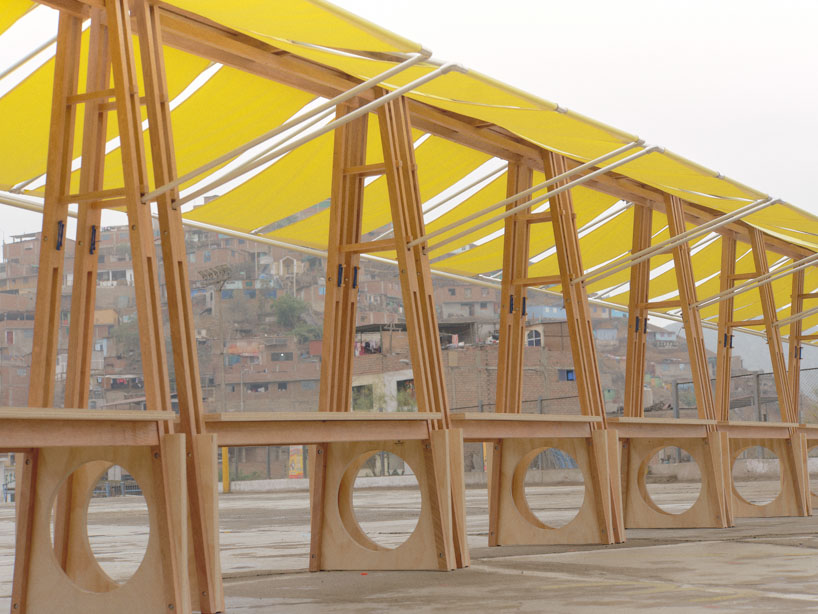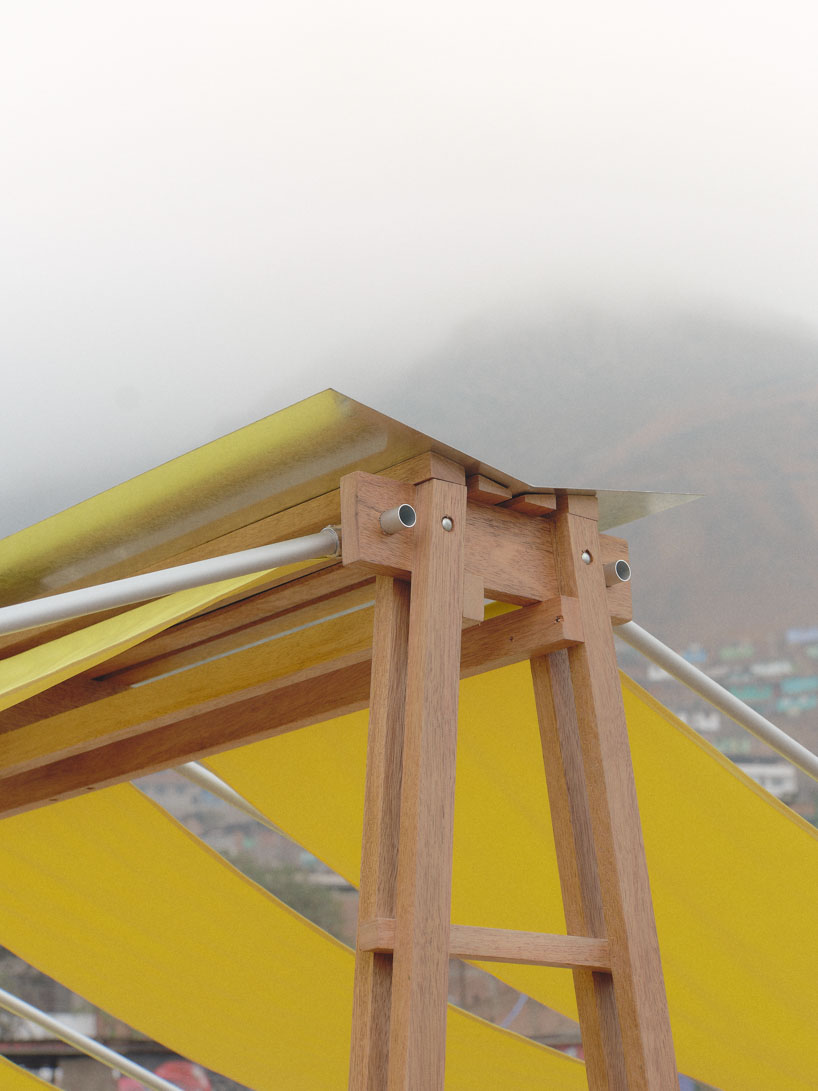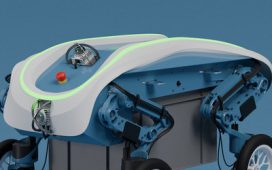salazarsequeromedina designs Sobremesas for the XIII BIAU
Sobremesas is a modular table system designed for communal gatherings, emphasizing shared meals and conversation as central elements of social and intellectual exchange. The project took part in the 13th Ibero-American Biennial of Architecture and Urbanism (BIAU) which was celebrated in Lima, Peru in December 2024. Developed by salazarsequeromedina in collaboration with Leggett & Cahuas and the BIAU Curatorial Team, the system functions as an adaptable public infrastructure. Unlike traditional pavilions, which serve a temporary purpose, Sobremesas was conceived as an open-ended element that could be repurposed after the Biennale.
The system is designed as a versatile, modular prototype constructed from locally sourced Tornillo wood. It is engineered for simple assembly, disassembly, and transportation, allowing for flexible configurations that accommodate different activities, including markets, festivals, food security workshops, hydroponics, composting, outdoor dining, and educational programs. During the XIII BIAU, Sobremesas was installed as a support structure for events such as ‘Sobremesas: Community Resilience and Healthy Living and Workshop on Food Security.’ These events emphasized the role of ‘La Red de Ollas Comunes’ community kitchens in strengthening local networks and providing essential resources. Following the Biennale, the modular elements were donated for continued community use at ‘Centro Cultural Comedor Comunal San Martín del Once’ in La Balanza and ‘Olla Manos Milagrosas’ in Manchay.

all images by Ivan Salinero
Sobremesas tables were donated to local community kitchens
Sobremesas project was developed by collaborative architecture practice salazarsequeromedina, with Leggett & Cahuas and the BIAU Curatorial Team. The 13th Ibero-American Biennale of Architecture and Urbanism (BIAU) took place in Lima, Peru, in December 2024. Titled ‘CLIMAS: Acciones para el Buen Vivir,’ this edition was curated by a team based in Lima and Madrid, led by Gary Leggett, José Luis Villanueva, Luis Rodríguez Rivero, Elizabeth Añaños, María Arquero, and Emilio Ontiveros. The event featured talks, workshops, round tables, exhibitions, and seminars, addressing architectural and urban challenges in the context of climate change, with a focus on the Global South. This edition highlighted community-led initiatives, particularly ‘La Red de Ollas Comunes,’ by integrating its activities into the program.
‘La Red de Ollas Comunes’ is a network of community kitchens in Lima, Peru, that emerged to address food insecurity in informal urban settlements. These peripheral districts developed following mid-20th-century migration from the Andes, forming self-built neighborhoods where essential infrastructure was initially lacking. Over time, grassroots organizations have structured these areas through activism and local efforts. The network operates through a complete food cycle, including urban farming, hydroponics, communal cooking, and composting. During the COVID-19 pandemic, ‘La Red de Ollas Comunes’ played a crucial role in maintaining food security.

the structure has been designed as a prototype for a versatile modular system fabricated with locally sourced wood

unlike temporary pavilions, the table serves as an open-ended infrastructural element that can be repurposed

the design allows for easy assembly, disassembly, and transportation

constructed from locally sourced Tornillo wood, the system is modular and adaptable











